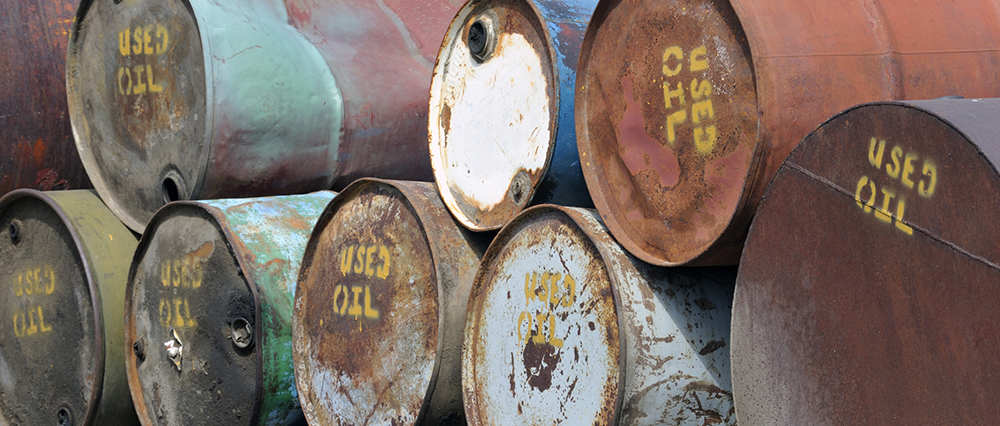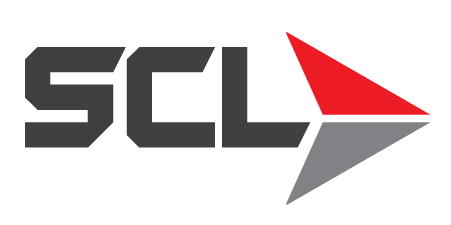Proper Disposal and Recycling of Used Oil and Grease

Proper Disposal
The Importance of Properly Disposing of Used Oil and Grease
In 1842, Julius Robert Mayer, a German physician, chemist and physicist and one of the founders of thermodynamics, developed the Law of Conservation of Energy, which suggests that energy can neither be created nor destroyed; rather, it can only be transformed or transferred from one form to another. How does this translate to oil and grease? If matter and energy in the form of oil and grease can neither be created nor destroyed, and only transformed or transferred from one form to another, then through proper disposal by collecting and refining these products they can continue within a cycle of use indefinitely.
The Lifecycle of Used Oil and Grease
Through the proper disposal of recycling and refinement of used oil and grease, new products are created that carry entirely different applications. Not only are these used products extremely environmentally hazardous when not properly disposed of, but they are also perfectly viable commodities that can be prevented from going to waste. There are numerous recycling processes that remove “chemical, physical and mechanical impurities (from oil through) distillation, acidic refining, clay treatment and hydrogenation… (that) give different yield and product,” according to an article from ScienceDirect.com. The EPA defines used oil as “Any petroleum-based or synthetic oil that has been used,” which as a result of use can acquire “Impurities such as dirt, metal scrapings, water, or chemicals, (that) can then get mixed in with the oil, so that in time, (it) no longer performs well. Eventually, this used oil must be replaced with virgin or re-refined oil to do the job correctly.” Collected and recycled motor oil can be distilled into multiple different products such as diesel fuel, asphalt, fuel oil for furnaces and power plants, or marine fuels. Despite the refining or re-refining processes, an oil’s lubrication properties remain, along with indefinite recylability. Re-refined oil products are considered to be comparable in safety and chemical integrity for use in engines and machinery, meeting the same API specifications as non-recycled, virgin products.
The Benefits of Recycling Lubricant Products
According to Advanced Auto Parts, recycling your oil is a positive practice for the environment. “It takes 42 gallons of crude oil to produce 2.5 quarts of lubricating oil. Compare that to only one gallon of recycled oil to produce the same 2.5 quarts.” That’s a 42:1 difference in volume needed to create the same product, and those 42 gallons of crude are energy intensive to extract, refine and manufacture, so contributing to and utilizing recycled oil is an environmental and economic boon. Properly removing and recycling used oil products keeps them out of our soil and our water, requires less energy to produce and keeps a perfectly viable resource in circulation.
Recycling Used Oil and Grease
According to the EPA, used motor oil is “Insoluble, persistent, and can contain toxic chemicals and heavy metals. It’s slow to degrade, sticks to everything from beach sand to bird feathers and is a major source of oil contamination of waterways, resulting in pollution of drinking water sources. Toxic oil sludge clogs sewers and storm drains and sticks to everything it touches—birds, beaches, pets. Cleanup… after a major oil spill, is a costly, prolonged procedure.” The used oil resulting from just one oil change can contaminate 1-million gallons on fresh water, an amount that the EPA claims to be “a year’s supply (of water) for 50 people.” Whether you change your own oil from home or are a facility that manages a volume of lubricant products, it is critical that you understand proper handling of oil and greases as well as optimal disposal practices. Here are some helpful tips on how to properly dispose of your used oil and grease:
- Prevent Spills – Prior to changing or transferring used oil, lay out the appropriate drip pan or base layer to catch any drops or spills. Use catchments and storage containers with built-in spouts for easy, clean transfer, and store used products in a leak-proof container in an area with minimal temperature fluctuations.
- Recycle Your Oil Filters – Oil filters will be soaked with oil, so drain them into a secure container. Post-draining, filters may contain as much as 10 oz. of residual oil, so definitely recycle them to keep such waste out of landfills.
- Proper Storage – Be sure to store used oil in an easy to pour, sealable container – even an original oil container, although be careful not to mix products. Containers should be stored in clean and dry locations prior to pick up for recycling and should be clearly labeled to avoid mixing.
- Never Mix Products – If motor oil is mixed with other automotive products and fluids such as brake fluid, it cannot be recycled and instead requires proper disposal as a hazardous material. Make sure you keep specific products separate instead of putting all waste fluids into one container. When pouring used oil into a container, make sure it is clean and does not have residual fluids of a different kind.
- Disposal and Recycling Resources – Check in with your local automobile maintenance facilities, waste collection specialists, and local, state and federal government waste offices to find out when and where you can drop off used products.
Proper Disposal Resources
The following are organizations to contact for information on the proper disposal of used lubricant products:
- American Petroleum Institute Used Motor Oil Collection and Recycling
- Compliance Assistance Center for Auto Repair
- Environmental Compliance for Auto Recyclers
- Earth 911 Recycling Search Tool
Contact an SCL Consultant Today
In a wide range of industrial sectors, SCL is committed to being the number one logistics and solutions provider for the products that protect and optimize the machines that keep our country moving. We pride ourselves on remaining at the forefront of industry trends and technological innovations, and as the market continues to evolve, we are committed to providing extensive product and industry knowledge and total performance satisfaction for our customers. For information on how we can assist your fleet in choosing the optimal products at a competitive price, contact an SCL consultant today.
